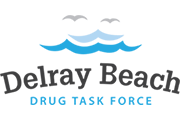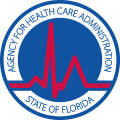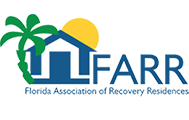Heroin is a powerfully dangerous and highly addictive drug that can be abused via smoking, snorting, or injecting. Derived from the opium poppy plant, heroin usually appears as a white powder, a brown powder, or a sticky tar-like substance. As is the case with many opioids, heroin abuse can quickly lead to tolerance and dependence.
Understanding Heroin Addiction
Learn about heroin addiction
When a person ingests heroin, his or her body converts the drug into morphine. In this converted form, the drug interacts with receptors that control the release of hormones associated with pleasure, excitement, and reward. This interaction provides users with the euphoric rush that is typically associated with heroin abuse. However, heroin abuse impacts areas in the brain stem that control automatic functions, such as breathing and blood pressure, and can thus cause significant and sometimes irreversible damage.
Statistics
Heroin Abuse Statistics
The World Health Organization (WHO) estimates that more than nine million people across the globe engage in heroin abuse, and that heroin is responsible for the majority of the 70,000 annual deaths that are related to opioid abuse.
In the United States, experts estimate that as many as 900,000 people have engaged in heroin abuse in the past 12 months, and that about four million Americans have abused heroin at least once in their lives. In recent years, the number of Americans who tried heroin for the first time has been on the rise. For example, between 2002 and 2013 the annual number of people who said they had used heroin for the first time in the previous 12 months rose from 90,000 to 150,000.
Causes & Risks
Causes and Risk Factors for Heroin Abuse
Heroin abuse and addiction cannot be attributed to one sole cause. As is the case with other forms of substance abuse and addiction, a combination of influences usually precedes the development of a heroin problem. The following are among the factors that raise a person’s risk for developing an addiction to heroin:
Genetic: Multiple studies document that individuals whose parents had a substance use disorder are at an increased risk for having problems with heroin or other drugs. One study found that children of addicted parents are eight times more likely to develop an addiction than are people whose parents never struggled with substance abuse and addiction.
Environmental: Addiction within one’s family can also be an environmental influence, as people who are exposed to drug use when they are in their formative years are more likely to engage in this behavior themselves. Other external factors that promote addiction include living in poverty, dealing with chronic stress, and experiencing abuse, assault, or other forms of trauma.
Risk Factors:
- Being male
- Being under the age of 30
- Family history of substance abuse or mental illness
- Having depression or another mental health disorder
- Prior abuse of other substances
- Poor coping skills
- Low self-esteem
- Associating with peers who abuse heroin
Signs & Symptoms
Signs and Symptoms of Heroin Abuse
The following are among the common signs that may indicate that a person is struggling with a heroin abuse problem:
Behavioral symptoms:
- Possessing syringes, hypodermic needles, and other drug paraphernalia
- Always wearing long sleeves and long pants (to hide evidence of injection drug abuse)
- Being dishonest or otherwise deceptive regarding one’s activities and whereabouts
- Struggling with unexplained financial problems
- Neglecting personal hygiene
- Expressing out-of-character aggressiveness or irritability
- Withdrawing from family and friends
Physical symptoms:
- Significant weight loss
- Bloodshot or watery eyes
- Runny nose
- Constricted pupils
- Lethargy and fatigue
- Dry mouth
- Itchiness
- Abscesses, sores, and scabs
- Nausea and constipation
Cognitive symptoms:
- Disorientation
- Inability to focus or concentrate
- Impaired decision-making skills
- Hallucinations
Psychosocial symptoms:
- Emotional excitability
- Dramatic mood swings
- Decreased interest in activities that were previously very important
Effects
Effects of Heroin Abuse
The following are among the many ways that heroin abuse can negatively impact a person’s physical, mental, emotional, social, and financial well-being:
- Contraction of illnesses like hepatitis B, hepatitis C, and HIV/AIDS
- Kidney disease
- Liver disease
- Pneumonia
- Heart attack
- Stroke
- Job loss
- Chronic unemployment
- Financial devastation
- Legal problems, including incarceration
- Family discord, separation, and divorce
- Strained or ruined friendships
Co-Occurring Disorders
Heroin Abuse & Co-Occurring Disorders
Addiction rarely occurs in a vacuum. The following are among the more common co-occurring disorders that may accompany heroin dependency:
- Other substance use disorders
- Major depressive disorder
- Persistent depressive disorder
- Bipolar disorder
- Anxiety disorders
- Posttraumatic stress disorder (PTSD)
Withdrawal
Effects of Heroin Abuse Withdrawal & Overdose
Effects of heroin withdrawal: Once a person has become dependent upon heroin, abrupt cessation or dramatic reduction in use can trigger the following withdrawal symptoms:
- Powerful drug cravings
- Agitation
- Depression
- Excessive perspiration
- Nausea
- Vomiting and diarrhea
- Muscle and bone pain
- Severe cramping
- Hallucinations
- Delusions
Effects of heroin overdose: Any time a person abuses heroin, he or she is at risk for overdosing, which can cause irreversible damage, including death. Anyone who exhibits the following symptoms in the aftermath of abusing heroin is in need of immediate medical attention:
- Irregular heart rate
- Extremely low blood pressure
- Shallow or strained breathing
- Severe disorientation
- Uncontrollable muscle spasms
- Coma












